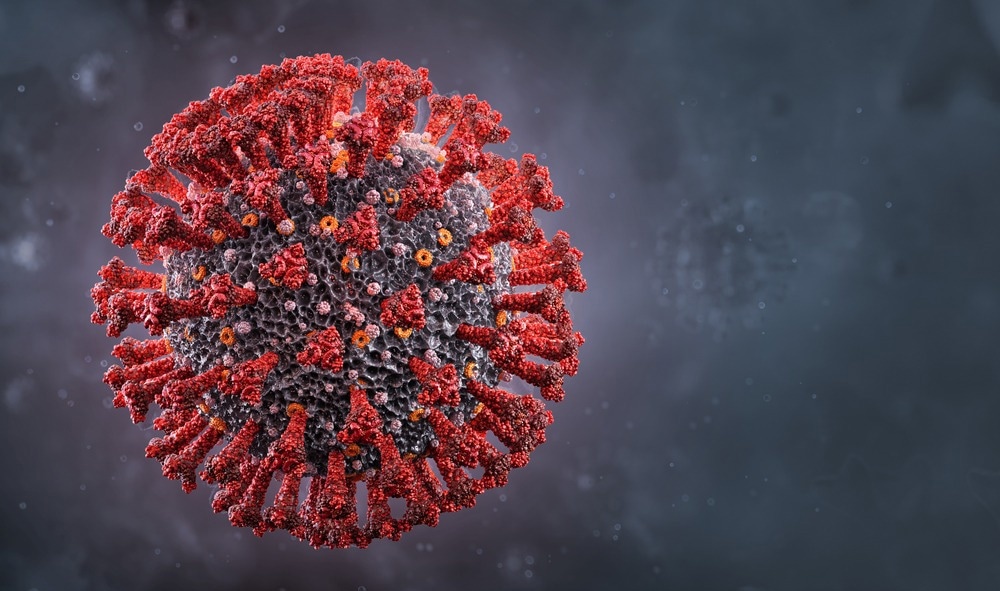In a recent study posted to the medRxiv* preprint server, researchers assessed the impact of bebtelovimab (BEB) monoclonal antibody (MAb) in the treatment of high-risk severe acute respiratory syndrome coronavirus 2 (SARS-CoV-2) Omicron variant-infected patients.
 Study: Lack of effectiveness of Bebtelovimab Monoclonal Antibody Among High-Risk Patients with SARS-Cov-2 Omicron During BA.2, BA.2.12.1 and BA.5 Subvariants Dominated Era. Image Credit: Corona Borealis Studio/Shutterstock
Study: Lack of effectiveness of Bebtelovimab Monoclonal Antibody Among High-Risk Patients with SARS-Cov-2 Omicron During BA.2, BA.2.12.1 and BA.5 Subvariants Dominated Era. Image Credit: Corona Borealis Studio/Shutterstock

 This news article was a review of a preliminary scientific report that had not undergone peer-review at the time of publication. Since its initial publication, the scientific report has now been peer reviewed and accepted for publication in a Scientific Journal. Links to the preliminary and peer-reviewed reports are available in the Sources section at the bottom of this article. View Sources
This news article was a review of a preliminary scientific report that had not undergone peer-review at the time of publication. Since its initial publication, the scientific report has now been peer reviewed and accepted for publication in a Scientific Journal. Links to the preliminary and peer-reviewed reports are available in the Sources section at the bottom of this article. View Sources
Background
BEB is employed as an alternative therapy for individuals who cannot be treated with a three-day intravenous (IV) course of remdesivir due to logistical issues or who cannot utilize nirmaltrevir/ritonavir because of severe drug-drug interactions. BEB was advised, according to laboratory findings that suggested significant efficacy against the SARS-CoV-2 Omicron and other VOCs. However, there is no phase 3 clinical trial results to support BEB's usage, while real-world experience is also limited in an era dominated by Omicron sub-variants.
About the study
In the present study, researchers compared the composite result of BEB MAb-treated high-risk outpatients to that of a propensity score (PS)-matched untreated control cohort for coronavirus disease 2019 (COVID-19).
This retrospective cohort research of COVID-19-positive individuals was undertaken from 5 April 2022 and 1 August 2022. BEB MAb-treated patients, as well as untreated individuals from Banner Health Care System's electronic health records (EHR). The alternative BEB MAb treatment was approved for mild-to-moderately severe COVID-19 among adults at high risk of illness progression and in children over 12 years who weighed 40 kg or more.
After exclusions, 19,778 COVID-19-positive individuals were identified from Cerner-EHR for this study. Across the study period, the Banner Health Care System displayed 12 MAb infusions and 128 testing sites.
The study index date associated with cohorts was established as the date when BEB MAb was administered or the date when the initial COVID-19-positive diagnosis was reported. The pre-propensity-matched trial sample consisted of 1,099 BEB MAb-treated patients along with 18,679 untreated individuals. The primary outcome of the study involved all-cause hospitalization and/or death in the post-propensity matched cohort 30 days after the index date.
Results
In the post-propensity-matched group, the median age of the subjects from the BEB MAb therapy group was 64 years, including 43% men and 78.7% White individuals, of which 68.6% were completely immunized against COVID-19.
The team noted that high-risk characteristics of the patient included age of 60 years or more, diabetes mellitus, hypertension, chronic pulmonary disease, body mass index (BMI) of 35 kg/m2 or more, chronic kidney disorder, chronic liver disorder, human immunodeficiency virus infection (HIV) and/or opportunistic infections, malignancy such as lymphoproliferative disease, solid organ transplant, hematopoietic stem cell transplants, and heart failure.
The composite outcome was observed at 1.8% in the pre-PS-matched, untreated control group. Compared to the untreated cohort, the incidence of composite outcomes noted in the BEB MAb treated cohort within 30 days was 2.2% versus 2.6%. In the BEB MAb group, all-cause hospitalizations reported within 30 days were 2.2% against 2.5%, and all-cause mortality was 0% versus 0.3% within 30 days.
The team detected no significant differences between the BEB MAb-treated and the control cohorts in subgroup analyses wherein the patients were categorized based on patient COVID-19 vaccination status, immunocompromised state, and age.
Conclusion
The study findings showed that the use of BEB MAb in SARS-CoV-2 Omicron variant-infected patients was ineffective. The study also highlighted the likelihood that most of the SARS-CoV-2 Omicron subvariants will develop resistance; the continued usage of BEB MAb may no longer be warranted. To assess generalizability, the researchers believe that real-world research from healthcare institutions across the globe would be required.

 This news article was a review of a preliminary scientific report that had not undergone peer-review at the time of publication. Since its initial publication, the scientific report has now been peer reviewed and accepted for publication in a Scientific Journal. Links to the preliminary and peer-reviewed reports are available in the Sources section at the bottom of this article. View Sources
This news article was a review of a preliminary scientific report that had not undergone peer-review at the time of publication. Since its initial publication, the scientific report has now been peer reviewed and accepted for publication in a Scientific Journal. Links to the preliminary and peer-reviewed reports are available in the Sources section at the bottom of this article. View Sources
Journal references:
- Preliminary scientific report.
Sridhara, S. et al. (2022) "Lack of effectiveness of Bebtelovimab Monoclonal Antibody Among High-Risk Patients with SARS-Cov-2 Omicron During BA.2, BA.2.12.1 and BA.5 Subvariants Dominated Era". medRxiv. doi: 10.1101/2022.12.06.22283183. https://www.medrxiv.org/content/10.1101/2022.12.06.22283183v1
- Peer reviewed and published scientific report.
Srilekha Sridhara, Ahmet B Gungor, Halil K Erol, Mohanad Al-Obaidi, Tirdad T Zangeneh, Edward J Bedrick, Venkatesh K Ariyamuthu, et al. 2023. “Lack of Effectiveness of Bebtelovimab Monoclonal Antibody among High-Risk Patients with SARS-Cov-2 Omicron during BA.2, BA.2.12.1 and BA.5 Subvariants Dominated Era” 18 (4): e0279326–26. https://doi.org/10.1371/journal.pone.0279326. https://journals.plos.org/plosone/article?id=10.1371/journal.pone.0279326.